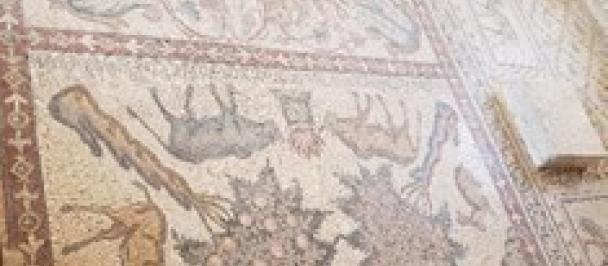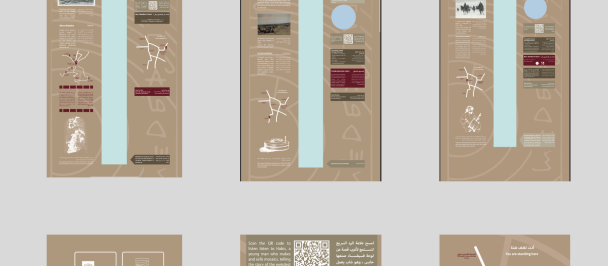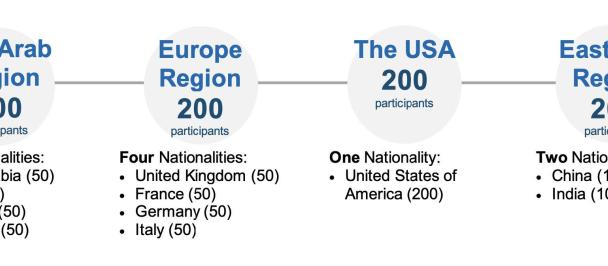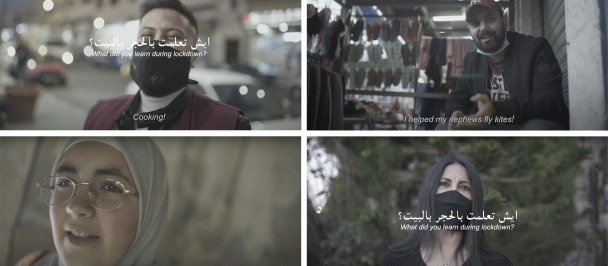By: Abdullah Bostaji, Communications Assistant, UNDP Jordan Accelerator Lab
The Jordan Accelerator Lab Goes Orange 🟠 to understand the role of safe public transportation in women's economic empowerment
January 20, 2023
Have you ever wondered what challenges women face going to work?
Have you ever thought of the obstacles women face using public transportation?
The 16 Days of Activism against Gender-Based Violence is an international campaign to raise awareness and generate action to end violence against women and girls around the world.
In 2022, the Accelerator Lab joined forces with the Gender Focal Team at UNDP Jordan to shed light on the role of safe public transportation in women's economic empowerment. It all started when the Gender Focal Team began planning for the 16 days of activism campaign. UNDP Jordan Accelerator lab brainstormed and proposed to use exploratory research tools that the Accelerator Lab had tested before and had proven to be successful. Jointly with the Gender Focal Team, we agreed that this research would be an added value to the 16 days of activism campaign activities.
Two main tools were used for the research, street interviews with members of the public, which "usually investigate opinions of the general public" and are "made up of clips taken from interviews with members of the public", and an online survey. Both tools provided results on women's experiences using public transportation in Jordan. The results of the research were presented by the Lab's team through the "The Role of Safe Transportation in Enhancing Women's Economic Participation" event organized by UNDP Jordan as part of the 16 days of activism campaign. The event was in collaboration with the Jordanian National Commission for Women and attended by government officials, partners and stakeholders.
Street interviews
We jointly worked with a local radio station to conduct street interviews with people from different areas in Amman to ask about their experience using public transportation. We interviewed males and females above the age of 18 about their use of public transportation and asked the following questions:
- What type of public transportation do you use, if any? (public buses, taxis, or shared cars) and for what purpose?
- What do you think of public transportation?
- How can your experience using public transportation be improved, or what would encourage you to use public transit?
Online Survey
In addition to the street interviews, we launched an online survey targeting females above the age of 18. The survey aimed to understand women's experience using public transportation in Jordan. To amplify the survey, we shared it on various platforms and networks. Two 228 females completed the survey. Although it might be considered a small sample to build a study on, the number of respondents was good enough for the limited time we had.
The survey included different types of questions, rating and multiple-choice questions and one open-ended question. We asked participants to rate their experience using public transportation and their challenges. Overall, the survey provided a quick reality check that uncovered what women struggle with using public transport.
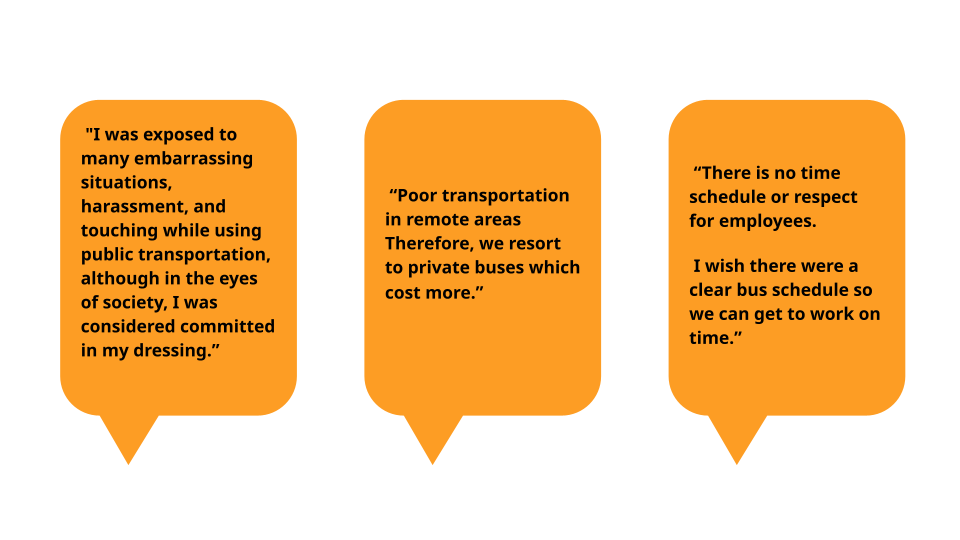
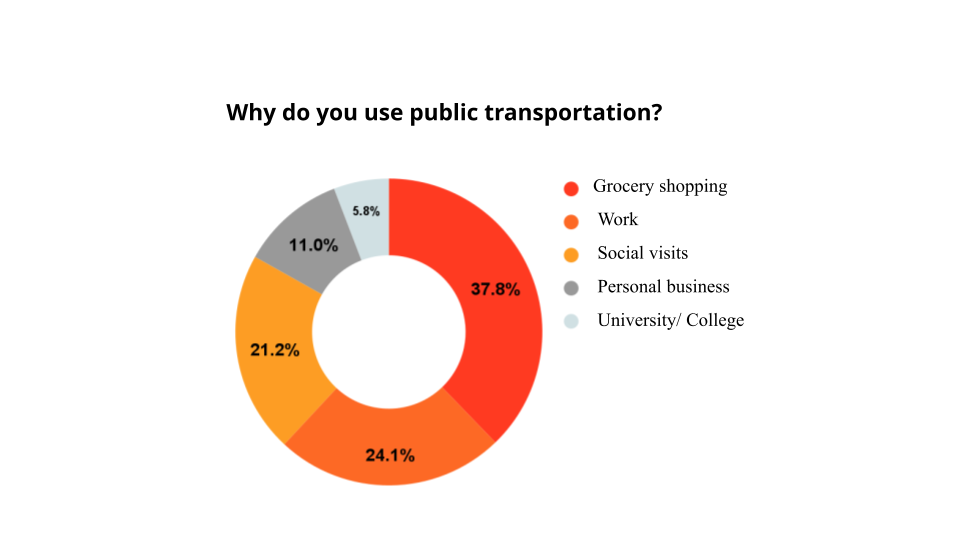
Survey Results
Presenting our work
We wanted our work to be memorable, so we displayed a video showing people telling their stories. Then we showcased the survey results and explained the respondents' challenges in using public transportation and why some avoid or don't use them.
Reflections and Lessons
Taking part in the campaign assisted us in better understanding the social and economic obstacles we were aware of; however, the results only scratched the surface of a deeper problem. The Accelerator Lab team played an essential role in this campaign by collecting the data, analyzing it and presenting us using tools we used in previous work.
Working closely with the Gender Focal Team, this experience opened my eyes to how women face different challenges in their day-to-day life. It kept me wondering how other male members of society and I could contribute to creating a safer and more inclusive space for everyone.


 Locations
Locations